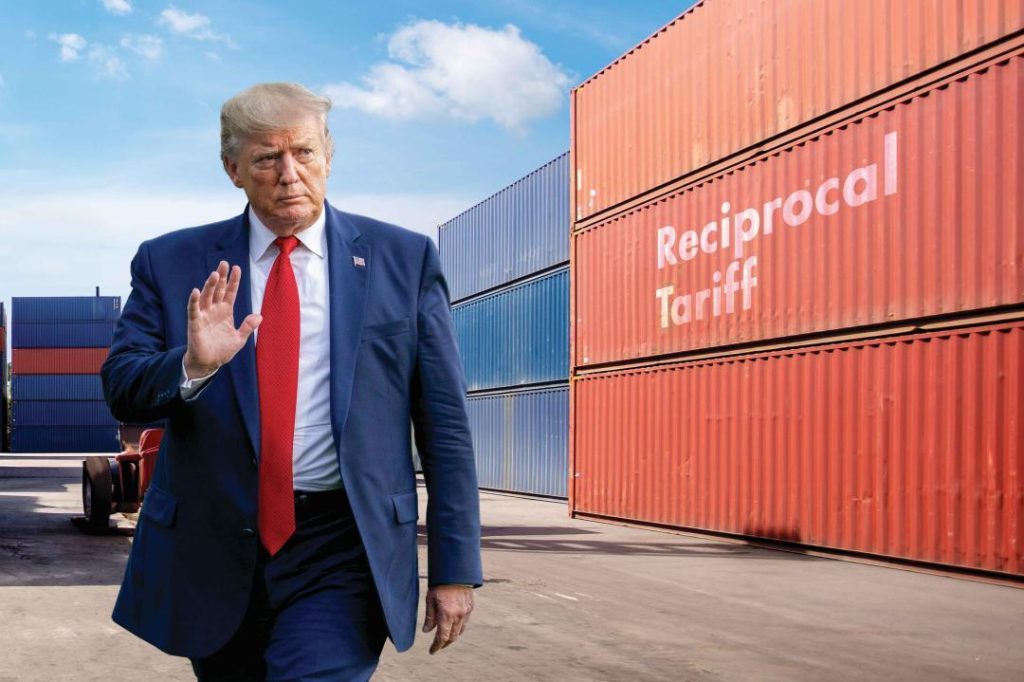
The Great Tariff War: Disruption, Diplomacy, & the Future of Trade
The global economy is facing a major disruption with the ongoing trade tensions between the United States and several countries, including China, India, and the European Union. The latest salvo in this trade war is the announcement of new tariffs by the US on imported goods from these countries. In this blog post, we’ll delve into the implications of this tariff war, the opportunities it presents, and the future of global trade.
The Background of the Tariff War
The trade tensions between the US and China began in 2018 when the Trump administration imposed tariffs on imported Chinese goods worth $34 billion. The tariffs were aimed at forcing China to change its trade practices, which the US deemed unfair. China retaliated by imposing tariffs on US goods worth $3 billion. Since then, the tariffs have only escalated, with the US imposing tariffs on imports worth $250 billion and China imposing tariffs on imports worth $110 billion.
In recent months, the US has also imposed tariffs on imports from India and the European Union. The latest announcement is a 10% tariff on over 300 Indian goods, including steel and aluminum products. This move is seen as a response to India’s decision to impose tariffs on certain US goods, including almonds and apples.
The Impact on Global Trade
The tariff war has already had a significant impact on global trade. According to a report by the World Trade Organization (WTO), the tariffs imposed by the US and China have reduced global trade by 1.1% in 2019. The report also warns that the ongoing trade tensions could lead to a global economic downturn.
The impact is not limited to the countries directly involved in the trade war. Many countries that rely heavily on trade with the US and China are also feeling the pinch. For example, countries in Southeast Asia, which are major suppliers of electronics and other goods to the US and China, are seeing a decline in their exports.
Opportunities for India
The tariff war presents an opportunity for India to strengthen its position as a global manufacturing and logistics hub. India is already emerging as an alternative to China amid global supply chain shifts. The country’s flexible labor laws, low labor costs, and strategic location make it an attractive destination for companies looking to diversify their supply chains.
In fact, several companies are already shifting their production lines to India. For example, Taiwan’s Foxconn, which is a major supplier to Apple, has set up a new manufacturing facility in India. Similarly, Japan’s Honda has announced plans to shift some of its production to India from China.
The Role of Diplomacy
While tariffs can be an effective tool in forcing countries to change their trade practices, they can also lead to a cycle of retaliation and counter-retaliation. Therefore, diplomacy and negotiation are crucial in resolving the trade tensions.
The US and China have already held several rounds of trade talks, but so far, they have not been able to reach a comprehensive agreement. The US is demanding that China make significant changes to its trade practices, including reducing its subsidies to state-owned enterprises and increasing the transparency of its trade data.
India, which is also a major player in the trade war, has been holding talks with the US to address its concerns over tariffs and trade practices. The country has also been engaging with other countries, including the European Union, to strengthen its trade ties and reduce its dependence on the US and China.
The Future of Global Trade
The tariff war has forced countries to rethink their trade strategies and diversify their supply chains. While the short-term impact of the tariffs is likely to be negative, the long-term implications could be positive.
Countries that are able to adapt quickly to the changing trade landscape and diversify their supply chains are likely to emerge stronger. India, with its flexible labor laws and strategic location, is well-positioned to take advantage of this trend.
In conclusion, the tariff war is a major disruption to global trade, but it also presents opportunities for countries to strengthen their position as global manufacturing and logistics hubs. Diplomacy and negotiation are crucial in resolving the trade tensions, and countries that are able to adapt quickly to the changing trade landscape are likely to emerge stronger.
Source:
https://www.logisticsoutlook.com/supply-chain/the-great-trump-tariff-war






